
Symposium 40 years CML: Scientists should speak up
In 2018, the Institute of Environmental Sciences (CML), born out of activism, exists for forty years. The institute celebrated this on 28 June in the Stadsgehoorzaal in Leiden. In the morning, proud directors and researchers looked back and forth. After this several experts discussed the current environmental crisis and the role of scientists in this crisis.
Struggle for survival
In times when the big boys like Greenpeace were founded, Leiden scientists climbed on the barricades to save the world from destruction. Helias Udo de Haes was one of them. To scientifically substantiate environmental actions, he founded the CML in 1978. ‘From the beginning it was a struggle for survival,’ emphasizes the former director. The interdisciplinary institute was searching for their position within the university and how they could keep science and actions separated.
‘In one way or another, we solved that puzzle,’ says current scientific director Arnold Tukker. After a turbulent and uncertain history , the CML flourishes like never before. The second director of the CML, Geert de Snoo, is now dean of the Faculty of Science. He is proud of the CML and all it has achieved: from publications in Nature to the establishment of the Leiden-Delft-Erasmus Center for Sustainability.
Interaction nature and society
‘Now that the environment is under heavy pressure, the CML is needed more than ever’, says Tukker. ‘We will have to continue to seek out society and focus on sustainable use of natural resources for a better world.’ Peter van Bodegom, head of the Environmental Biology department, agrees: ‘we still focus our research on interactions between nature and society. But now with advanced techniques in the field of DNA, microscopy and satellite data.’ In the presentations that follow, this socially oriented approach becomes clear. Several researchers talk about topics ranging from research into animal welfare in the meat industry to the small ditches in the Living lab.
Enter the political arena
Although sustainability is increasingly on the political agenda, solving the environmental crisis still doesn’t go well. This is due in part to the emergence of fake news and populism. In the afternoon member of the European Parliament Bas Eickhout, journalist Joris Luyendijk and environmental scientist Klaas van Egmond shine their light on this issue.
Eickhout is predominantly positive. He believes that most journalists are still trying hard to bring objective news into the world. He also thinks that you should not be afraid of populists. 'In the European Commission they form a minority of a parliament that consists of several cooperating parties. This is in contrast to a polarizing bilateral system such as in the United States and England.'
Eickhout further emphasizes that there are few politicians with a scientific background. As a result, science plays too small a role in Brussels. He therefore proposes the following to the environmental scientists in the room: 'Enter the political arena, not as a politician but as the one who can feed the political debate by informing the politicians.'
Undertaking action yourself
Journalist Joris Luyendijk is a lot more pessimistic: ‘We are fighting a lost battle.’ He also urged that the public should let itself be heard and seen more. ‘It is as if you are shouting " fire, fire " and then do not try to extinguish the fire yourself. Scientists need to take action and demonstrate that they genuinely care about their research. ’According to Luyendijk, your credibility increases if you also make the sacrifices that you ask of others. 'So: why is Leiden University not yet climate neutral?'
Van Egmond even calls himself more pessimistic than Luyendijk. He thinks that the current environmental policy is on collision course. ‘Until there is a CO2 tax, all measures can be compared to rearranging the chairs on the Titanic.’ According to him, it is important that all values of man: the spiritual, material, collective and individual are recognized and connected.
Not in my backyard
In the closing discussion between a student and professors panel and the public, many people wonder: why should I give up something if my neighbor does not do it? This is also known as the Not in my backyard syndrome. According to Van Bodegom, a coalition of volunteers including large companies, is needed to get things started. That is why 67 professors, including Van Bodegom, last March wrote an open letter to their own pension fund ABP, major shareholder in Shell. 'Sometimes you need outside forces to get large companies.'
Bookpresentation
Ed Olivier described the stories of the old and current staff in the book Forty years of Leiden Environmental Sciences: the history of the Institute for Environmental Sciences 1978 - 2018. Current director Tukker presented the first copies to former directors Udo de Haes and Snoo.
Developments
Van Bodegom announced that the Conservation Biology department will continue under the name Environmental Biology. Tukker furthermore announced the start of a new master. In 2019, Governance of Sustainability will start at the Science faculty in collaboration with the de program Public administration of the faculty Governance and Global Affairs in Den Haag.
-
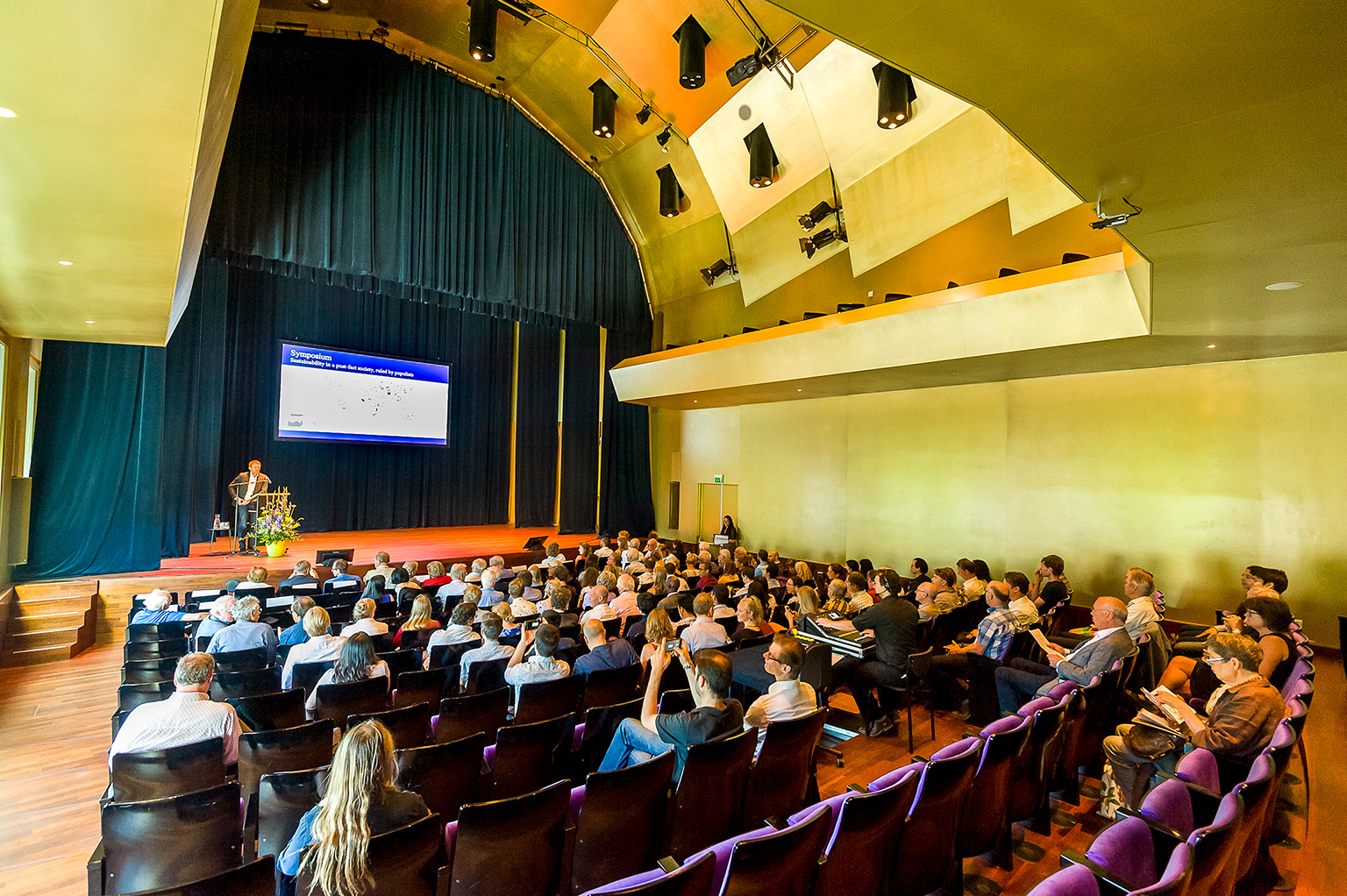
credits - Pim Rusch fotografie -
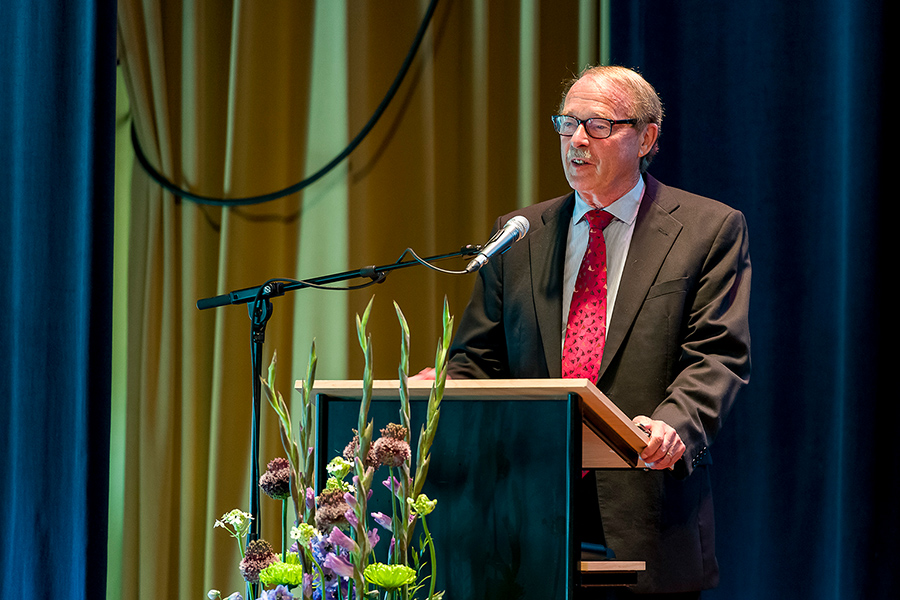
credits - Pim Rusch fotografie -
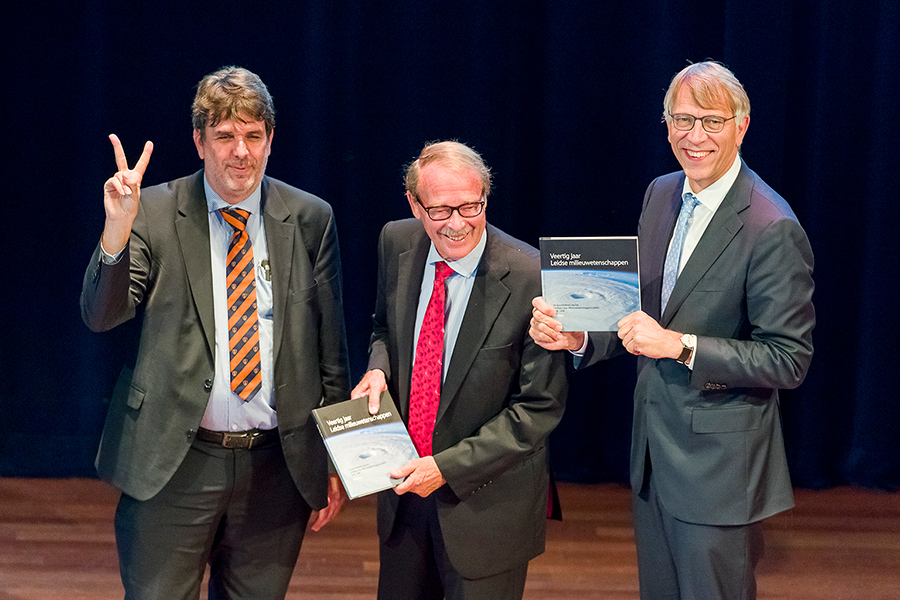
credits - Pim Rusch fotografie -
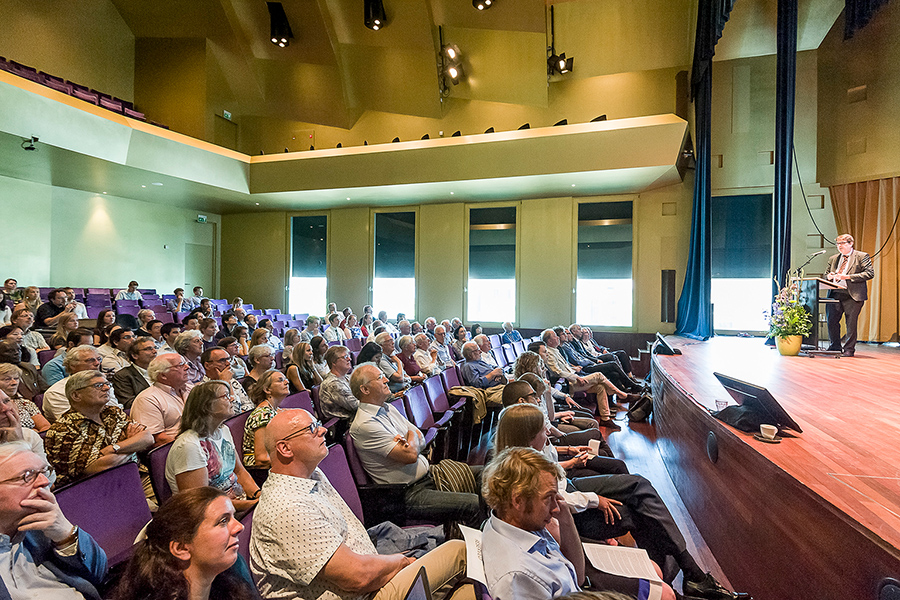
credits - Pim Rusch fotografie -
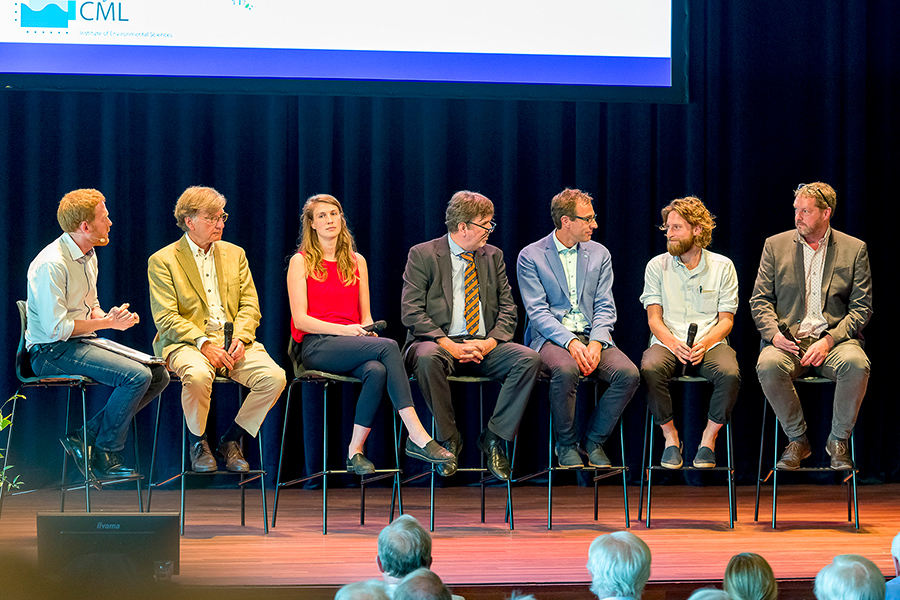
credits - Pim Rusch fotografie
